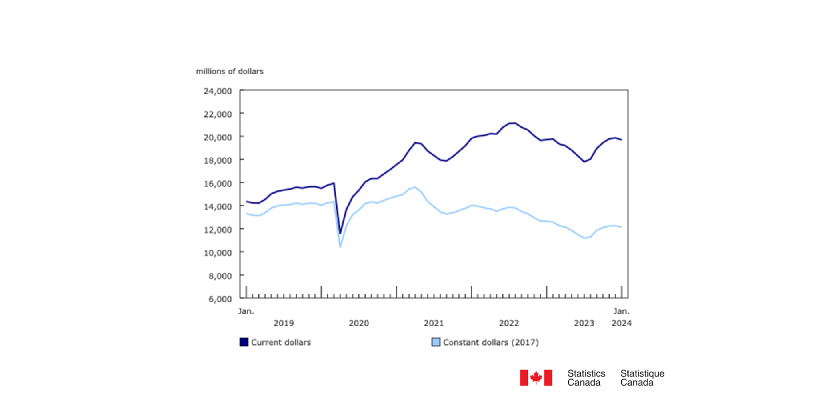Ontario Chamber of Commerce Delivers an “Open for Business” Blueprint to New Premier

Aug 14, 2018
In a wide-ranging letter to newly elected Premier Doug Ford and all his cabinet ministers, the Ontario Chamber of Commerce has suggested a series of policy initiatives to make Ontario “open for business,” one of Ford’s key campaign messages.
A number of suggestions appearing in the Chamber’s document, A Blueprint for Making Ontario Open for Business, could affect electrical contractors and are listed below. The suggestions are the result of a broad discussion conducted by the Chamber called Vote Prosperity. The intent: outline the Ontario business community’s priorities for the 2018 provincial election campaign.
“In this drive to make Ontario open for business, we cannot overlook the needs of small enterprises: small business makes up 98% of all Ontario businesses and 30 percent of the provincial GDP,” writes Chamber President and CEO Rocco Rossi in a covering letter.
• Promote the skilled trades as a viable career option for young people. Students and their parents are often unaware of how lucrative and rewarding a career in the trades can be. The Ministry of Education should collaborate with the Ontario College of Trades to develop a curriculum that communicates the challenging and valuable work of the skilled trades.
• Create more experiential learning opportunities, particularly with SMEs. Increasing the number of experiential leaning opportunities would not only provide employers with a more capable workforce able to meet timely and job-specific needs, but also give individuals the chance for greater economic mobility.
• Modernize the apprenticeship system. The current platforms used by Ontario’s apprenticeship application and training processes are onerous, outdated, and fragmented. This has resulted in more than half of apprentices abandoning their training before it is complete, and frustration from employers who need skilled labour but are challenged by outdated administrative processes.
• Reform the Ontario College of Trades. The college has become overly focused on enforcement and regulation, limiting its ability to serve the public interest by attracting and training new trades people. While the OCC was encouraged by the findings in Tony Dean’s Supporting the Skilled Trades in Ontario review, those findings were not acted upon, leaving significant work that must be done to address governance issues within the College. Your ministry should therefore immediately implement the appropriate reforms recommended by the Dean report and sector stakeholders. If this is not possible, the government should dismantle the college and return responsibility for trades regulation to the province.
• Modernize the journeyperson-to-apprentice ratio. To address the desperate need for skilled tradespeople in Ontario, it is critical that the Province revise the current journeyperson-to-apprentice ratio. Fundamentally, there needs to be greater flexibility within the Ontario apprenticeship framework.
• Take swift action on reducing unproductive regulation. Ontario is the most regulated jurisdiction in Canada, hampering economic growth, burdening business with outsized administrative costs, and dissuading foreign investment. The province should take immediate action to streamline and modernize regulation with the goal of increasing business competitiveness, by means such as: a) building on the red tape challenge b) avoiding a piecemeal approach to new regulations c) measuring the economic impact of regulation d) advocating for regulatory harmonization.
• Tackle Ontario’s scale-up challenge. Too few entrepreneurs are continuing to build their business, or “scale up,” in Ontario. To tackle this challenge, a) delay taxation on corporate income growth to help businesses scale b) bracket the Small Business Deduction for all businesses with an annual income less than $500,000
• Build a “one-window” concierge service to help small business navigate regulation. The OCC has long advocated for a regulatory ‘concierge service’ to assist small businesses in understanding, navigating, and achieving compliance with regulatory requirements.
• Advocate for a proportional allocation for the Ontario Immigrant Nominee Program. Employers in communities across Ontario note their continued inability to access talent as a serious challenge to their growth, and one that contributes to the economic hollowing out of rural and remote areas… Economic class immigrants are needed to weather the demographic and economic changes shaping Ontario, including the erosion of the tax base from an aging population, low labour productivity, and the skills mismatch.
• Connect all Ontarians to high-speed Internet. Despite large investments, tens of thousands of homes and businesses in Ontario still lack adequate access to high speed internet. This is compromising the ability of communities across the province to innovate and modernize, attract and retain business, educate their populace, and engage with the global economy.
Read the online document here: www.occ.ca/wp-content/uploads/Final-Blueprint-Letters.pdf










![Guide to the Canadian Electrical Code, Part 1[i], 26th Edition – A Road Map: Section 10 – Grounding and Bonding](https://electricalindustry.ca/wp-content/uploads/2022/11/Guide-CE-Code-2.png)





